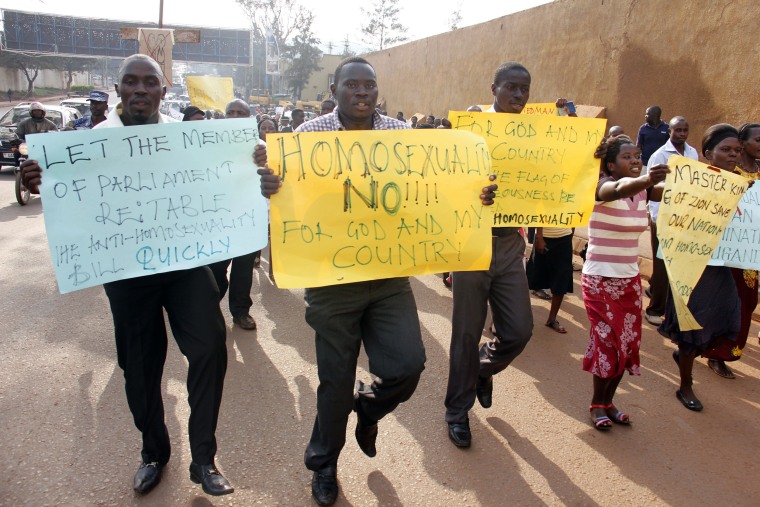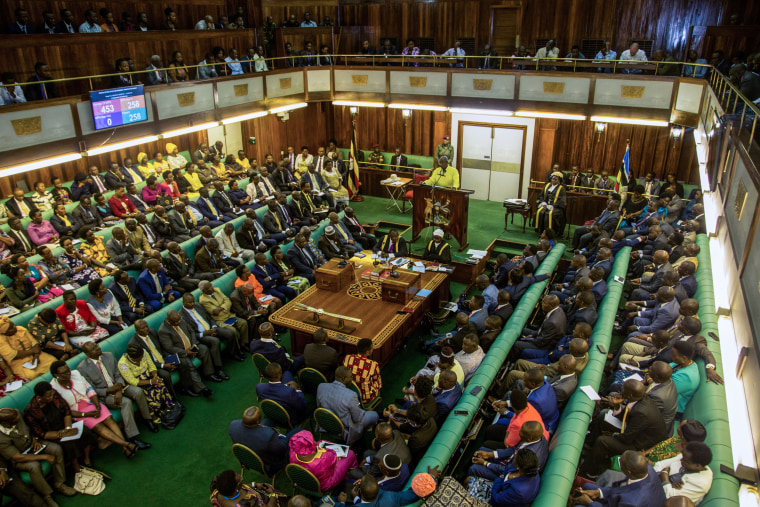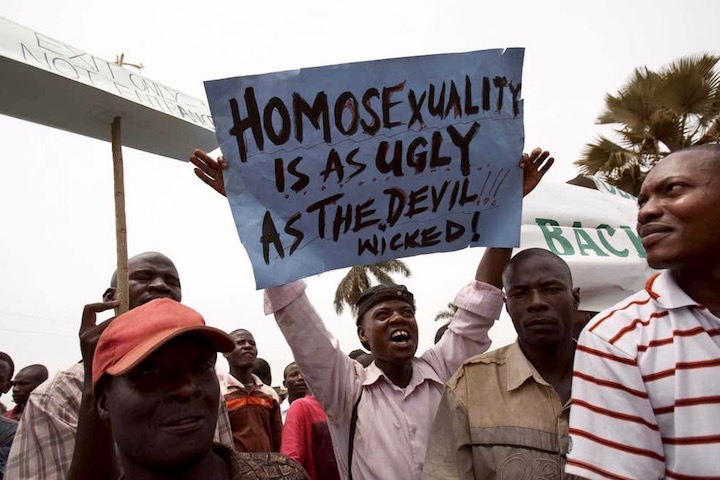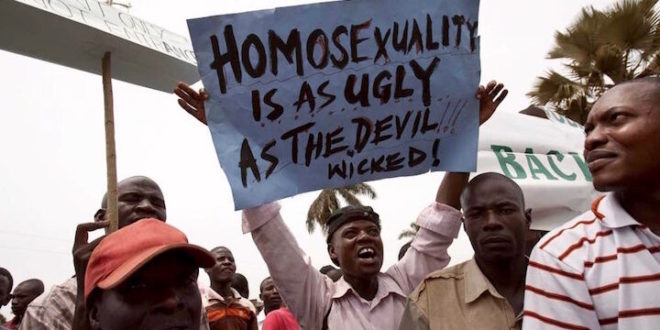Ugandan LGBTQ activist Brian Wasswa died on Oct. 5, one day after the 28-year-old was attacked at home amid rising tensions in the east African nation over its beleaguered lesbian, gay, bisexual, transgender and queer community. Sexual Minorities Uganda, a local advocacy group, said Wasswa’s death was the fourth LGBTQ-related murder there in three months.
The death of Wasswa, who was gay and gender-nonconforming, comes as human rights advocates have been sounding the alarm that the Ugandan government is ramping up pressure on the country’s LGBTQ community by threatening to reconsider the infamous 2014 “Kill the Gays” bill that increased the penalty for homosexuality from life in prison to death.

“When politicians, members of Parliament call for laws, the reintroduction of the ‘anti-gay’ law, they are responsible for this increase in vulnerability in the LGBT community,” Frank Mugisha, executive director of Sexual Minorities Uganda, stated in a press release announcing Wasswa’s death.
Uganda is highly conservative and a dangerous place to be openly gay. In 2010, the local tabloid The Rolling Stone published a list of “top homos,” and soon after, activist David Kato was killed. Many LGBTQ Ugandans have fled the country to seek asylum and refuge elsewhere.
Shortly after Wasswa’s death, Ugandan Minister of Ethics and Integrity Simon Lokodo joined in on the calls to revive Uganda’s so-called Kill the Gays bill, which was struck down by the country’s high court in 2014. In an interview with Thompson Reuters Foundation published last week, Lokodo said homosexuality “is not natural to Ugandans,” and blamed gay people’s existence on a “massive recruitment” in schools and among youth.
The Guardian reported that MP James Nsaba Buturo also said the bill would soon be brought forward in Parliament. However, a spokesperson for Ugandan President Yoweri Museveni said there are no current plans to reintroduce the legislation.

In an interview last week with a Ugandan TV station, Lokodo, a former Catholic priest, restated his plan to “bring back the anti-homosexuality bill.” When asked by the interviewer why he wants to reintroduced the bill now, he said, because “the things that were criminalized are still there.”
“The penal code only criminalizes the act,” he added, noting that the reintroduced bill would go further. “Now we are saying anything — like recruitment, promotion, exhibition — amounts to committing a crime against that law.”

Neela Ghoshal, a senior researcher at Human Rights Watch, said that as a government minister, Lokodo does in fact speak for the government, but his words should be taken “with a grain of salt.” Every few months, she noted, a Ugandan politician threatens to revive the “kill the gays” bill and “it brings them the political notoriety they want.”
“Even if they don’t move forward with this policy, the kind of statements being made shows that the Ugandan government does not value LGBT Ugandan lives,” Ghoshal said. She added that the Human Rights Awareness and Promotion Forum, the organization that Wasswa worked for, faced several recent attacks that harmed — and killed — security guards outside their facilities.
“The climate is such that human rights organizations feel like they can just continue to be hit and hit and hit again, and there’s never any accountability,” Ghoshal said.
Police in Jinja, the eastern Ugandan city where Wasswa lived and was killed, have opened an investigation into Wasswa’s murder, according to the Human Rights Awareness and Promotion Forum, which has urged the police to investigate the possibility that the murder may have been a hate crime.
“It is incumbent on the Ugandan authorities to deliver justice for the murder of Brian Wasswa,” said Oryem Nyeko, an Africa researcher at Human Rights Watch. “Police should conduct thorough investigations, and political leaders should refrain from any rhetoric that might encourage violence against LGBT people.”
Just before Wasswa’s murder, a government official linked Uganda’s LGBTQ community to a “terrorist” group. However, that group is a political movement run by one of the authoritarian president’s political rivals, a parliamentarian and singer named Bobi Wine, who has expressed lukewarm support for LGBTQ Ugandans and is expected to run for president in the country’s 2021 elections. Museveni has been president since 1986.
Uganda is one of at least 68 countries around the world where homosexuality is criminalized, according to Human Rights Watch. Earlier this year, the Trump administration announced a global campaign to end the criminalization of homosexuality.
SOURCE: nbcnews.com
 Home Of Ghana News Ghana News, Entertainment And More
Home Of Ghana News Ghana News, Entertainment And More





